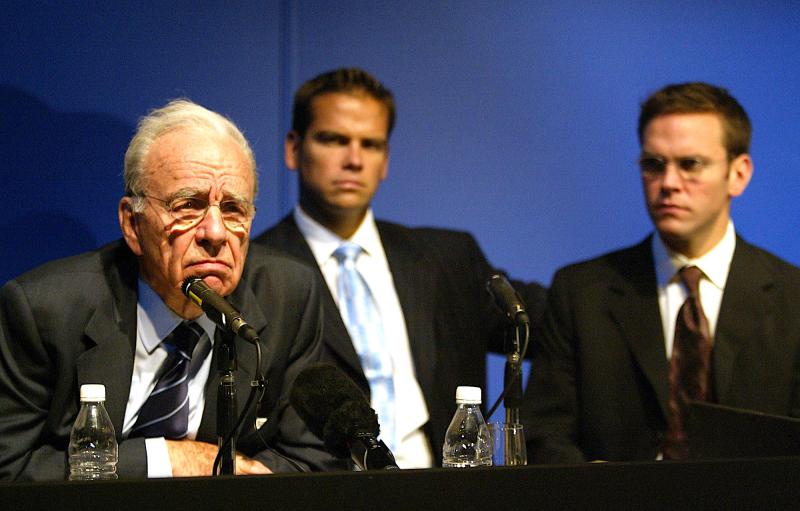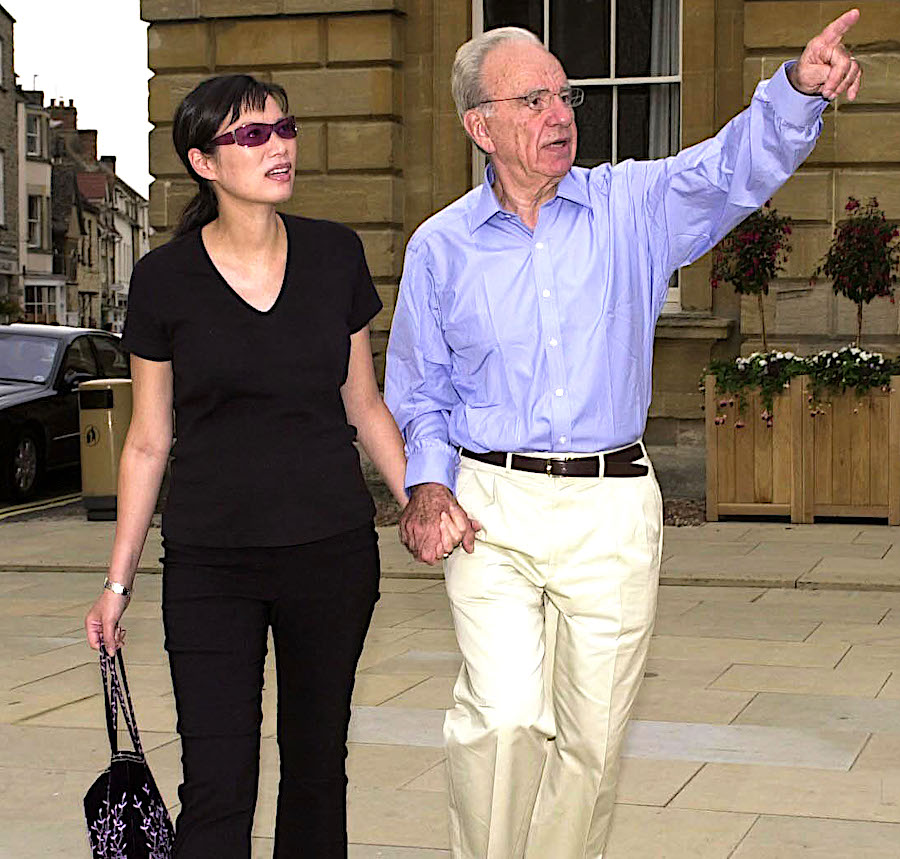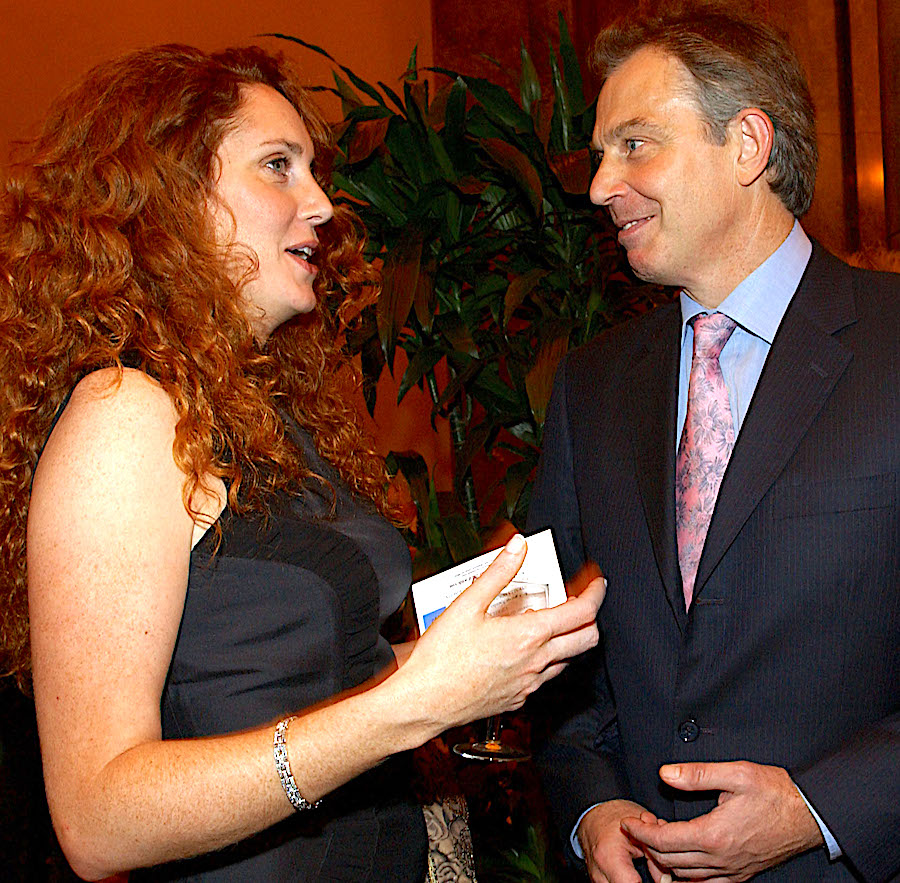The Rise of the Murdoch Dynasty, BBC Two review - how the Aussie tycoon acquired huge political leverage | reviews, news & interviews
The Rise of the Murdoch Dynasty, BBC Two review - how the Aussie tycoon acquired huge political leverage
The Rise of the Murdoch Dynasty, BBC Two review - how the Aussie tycoon acquired huge political leverage
New documentary told us what Rupert did, but not what he's really like

As an opening line to BBC Two's new three-part series, “Rupert Murdoch is an enigma” failed to set pulses racing.
Still, director Jamie Roberts and his team had done their due diligence in the research department, turning up a trove of nuggets from the archives interspersed with pithy interviews from assorted players in Murdoch’s extraordinary journey, including Alan Sugar, Hugh Grant, Piers Morgan and Andrew Neil. There were some chilling contributions from former News of the World reporter Graham Johnson, making what almost sounded like a deathbed confession as he outlined the dirty tricks and tactics his Murdoch-owned paper had used in the mid-Nineties to target (among others) Tory MPs. “The News of the World was like having a division of the SS at your beck and call,” he said, “and it could be sent into action and it would execute your orders to the fucking full stop.”
 This first episode, subtitled “Kingmaker”, considered the jockeying for power within the Murdoch family, namely daughter Elisabeth and sons Lachlan and James, and Rupert’s shock marriage to Wendi Deng in 1999 (pictured left, Wendi and Roop). A fascinating aside was hearing teenage soprano Charlotte Church describing how she sang at the their wedding, and was offered the choice of £100,000 or guaranteed favourable press coverage. At the urging of her management and record company, she opted for the latter.
This first episode, subtitled “Kingmaker”, considered the jockeying for power within the Murdoch family, namely daughter Elisabeth and sons Lachlan and James, and Rupert’s shock marriage to Wendi Deng in 1999 (pictured left, Wendi and Roop). A fascinating aside was hearing teenage soprano Charlotte Church describing how she sang at the their wedding, and was offered the choice of £100,000 or guaranteed favourable press coverage. At the urging of her management and record company, she opted for the latter.
But the main theme was the way Murdoch built his UK news operation, and used it to leverage huge political power. He found an ideological soulmate in Margaret Thatcher, who helped him acquire The Times and The Sunday Times as well as a big chunk of BSkyB, and in return benefited from robust support from his titles. But when John Major proved less compliant – he rejected Rupert’s request for the Conservatives to change their policy on Europe – he dumped the Tories for Tony Blair, who rushed into his arms like an ardent young lover, to the horror of more seasoned Labour Party figures.
 John Prescott summed up the dilemma. He reflected on how he could understand why Blair was desperately keen to enlist Murdoch’s support, having seen how his papers had systematically trashed a line of Labour leaders, but “I just don’t like the price that comes with it” (pictured right, Blair with Rebekah Brooks, editor of The Sun).
John Prescott summed up the dilemma. He reflected on how he could understand why Blair was desperately keen to enlist Murdoch’s support, having seen how his papers had systematically trashed a line of Labour leaders, but “I just don’t like the price that comes with it” (pictured right, Blair with Rebekah Brooks, editor of The Sun).
Part of Murdoch’s price was Blair’s promise to hold a referendum on Britain adopting the Euro, while Murdoch pushed Blair hard into backing the 2003 invasion of Iraq. They say all power corrupts, and you had to wonder why more of the people involved in these shenanigans didn’t end up in jail. Meanwhile, while we’ve been told what Rupert did, we still don’t know much about what he’s really like.
rating
Share this article
The future of Arts Journalism
You can stop theartsdesk.com closing!
We urgently need financing to survive. Our fundraising drive has thus far raised £49,000 but we need to reach £100,000 or we will be forced to close. Please contribute here: https://gofund.me/c3f6033d
And if you can forward this information to anyone who might assist, we’d be grateful.

Subscribe to theartsdesk.com
Thank you for continuing to read our work on theartsdesk.com. For unlimited access to every article in its entirety, including our archive of more than 15,000 pieces, we're asking for £5 per month or £40 per year. We feel it's a very good deal, and hope you do too.
To take a subscription now simply click here.
And if you're looking for that extra gift for a friend or family member, why not treat them to a theartsdesk.com gift subscription?
more TV
 Mr Scorsese, Apple TV review - perfectly pitched documentary series with fascinating insights
Rebecca Miller musters a stellar roster of articulate talking heads for this thorough portrait
Mr Scorsese, Apple TV review - perfectly pitched documentary series with fascinating insights
Rebecca Miller musters a stellar roster of articulate talking heads for this thorough portrait
 Down Cemetery Road, Apple TV review - wit, grit and a twisty plot, plus Emma Thompson on top form
Mick Herron's female private investigator gets a stellar adaptation
Down Cemetery Road, Apple TV review - wit, grit and a twisty plot, plus Emma Thompson on top form
Mick Herron's female private investigator gets a stellar adaptation
 theartsdesk Q&A: director Stefano Sollima on the relevance of true crime story 'The Monster of Florence'
The director of hit TV series 'Gomorrah' examines another dark dimension of Italian culture
theartsdesk Q&A: director Stefano Sollima on the relevance of true crime story 'The Monster of Florence'
The director of hit TV series 'Gomorrah' examines another dark dimension of Italian culture
 The Monster of Florence, Netflix review - dramatisation of notorious Italian serial killer mystery
Director Stefano Sollima's four-parter makes gruelling viewing
The Monster of Florence, Netflix review - dramatisation of notorious Italian serial killer mystery
Director Stefano Sollima's four-parter makes gruelling viewing
 The Diplomat, Season 3, Netflix review - Ambassador Kate Wyler becomes America's Second Lady
Soapy transatlantic political drama keeps the Special Relationship alive
The Diplomat, Season 3, Netflix review - Ambassador Kate Wyler becomes America's Second Lady
Soapy transatlantic political drama keeps the Special Relationship alive
 The Perfect Neighbor, Netflix review - Florida found-footage documentary is a harrowing watch
Sundance winner chronicles a death that should have been prevented
The Perfect Neighbor, Netflix review - Florida found-footage documentary is a harrowing watch
Sundance winner chronicles a death that should have been prevented
 Murder Before Evensong, Acorn TV review - death comes to the picturesque village of Champton
The Rev Richard Coles's sleuthing cleric hits the screen
Murder Before Evensong, Acorn TV review - death comes to the picturesque village of Champton
The Rev Richard Coles's sleuthing cleric hits the screen
 Black Rabbit, Netflix review - grime and punishment in New York City
Jude Law and Jason Bateman tread the thin line between love and hate
Black Rabbit, Netflix review - grime and punishment in New York City
Jude Law and Jason Bateman tread the thin line between love and hate
 The Hack, ITV review - plodding anatomy of twin UK scandals
Jack Thorne's skill can't disguise the bagginess of his double-headed material
The Hack, ITV review - plodding anatomy of twin UK scandals
Jack Thorne's skill can't disguise the bagginess of his double-headed material
 Slow Horses, Series 5, Apple TV+ review - terror, trauma and impeccable comic timing
Jackson Lamb's band of MI5 misfits continues to fascinate and amuse
Slow Horses, Series 5, Apple TV+ review - terror, trauma and impeccable comic timing
Jackson Lamb's band of MI5 misfits continues to fascinate and amuse
 Coldwater, ITV1 review - horror and black comedy in the Highlands
Superb cast lights up David Ireland's cunning thriller
Coldwater, ITV1 review - horror and black comedy in the Highlands
Superb cast lights up David Ireland's cunning thriller
 Blu-ray: The Sweeney - Series One
Influential and entertaining 1970s police drama, handsomely restored
Blu-ray: The Sweeney - Series One
Influential and entertaining 1970s police drama, handsomely restored

Add comment